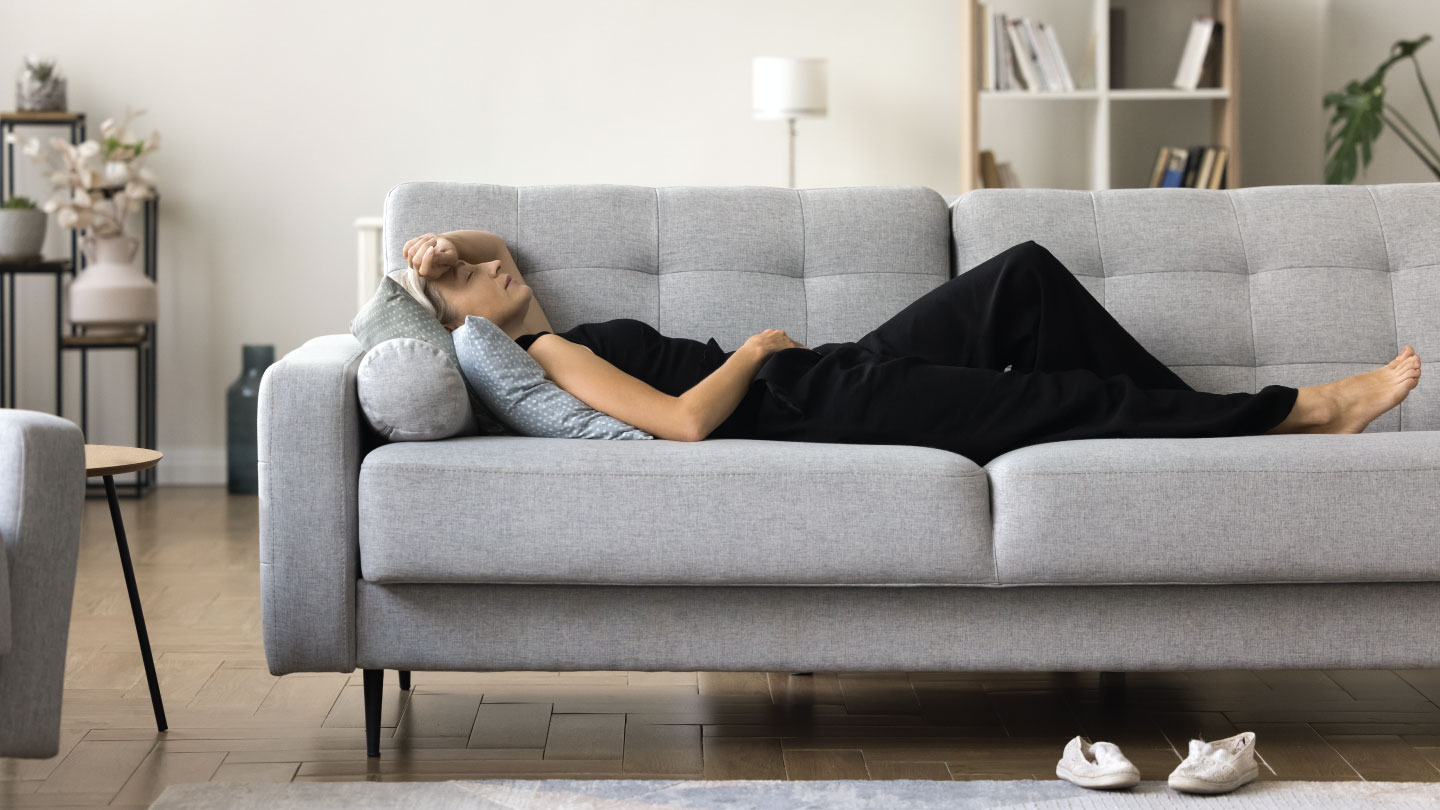Miscellaneous
10 Practical Tips For Sleeping Better During Perimenopause
Hot flashes, midnight awakenings, and mood swings, perimenopause can shake up your sleep routine. Here’s how to calm your nights and wake up refreshed, one mindful habit at a time.

-
Cool your sleep environment for night sweats
- Use an air conditioner to maintain a cool bedroom temperature, ideally around 20-22 °C or lower if possible.
- Choose breathable, natural fabrics (khadi, cotton, linen) for sheets and nightwear to wick sweat.
- Keep a thin, moisture-wicking layer handy (e.g., cotton handkerchief)
- Use blackout curtains and reduce humidity (use a dehumidifier if needed).
-
Stick to a consistent sleep–wake schedule
Related Story: 6 Lifestyle Changes to Prepare for Perimenopause
- Try to go to bed and wake up at the same time, even on weekends.
- Avoid naps longer than 20 minutes, especially late afternoon or evening.
- If you wake up at night, avoid checking your phone or clock (stress about ‘lost sleep’ is counterproductive).
- Consistency supports your circadian rhythm, helping you fall asleep and stay asleep better.
-
Mind your evening beverages and diet
- Limit caffeine (tea, coffee, cola) after around 2–3 pm.
- Avoid alcohol before bed, it disrupts sleep quality later.
- Eat lighter dinners; avoid heavy, spicy, or very rich foods just before bed.
- Stay well hydrated throughout the day, but limit large fluid intake close to bedtime to reduce nocturnal urination.
-
Develop a calming bedtime ritual
- Wind down at least 30–60 minutes before bed: read a physical book, practice gentle stretches, or listen to calming music.
- Try relaxation techniques such as deep breathing, progressive muscle relaxation, or guided imagery.
- Switch screens (phone, TV, tablet) off at least an hour before bedtime; if needed, use blue-light filters or night mode.
- Take a warm (not hot) shower 1–2 hours before bed—this can help cool your body and prepare you for sleep.
-
Incorporate gentle daytime movement
Related Story: Doctor Answers 5 Questions on Perimenopause
- Aim for moderate exercises like walking, yoga, swimming, or strength training for about 30 minutes most days.
- Avoid vigorous workouts less than 2–3 hours before bedtime.
- Movement helps regulate hormones, reduce stress, and support mood and sleep over time.
-
Address stress, anxiety, and mind chatter
- Practice mindfulness, meditation, or journaling to unload worries before bed.
- Cognitive behavioural therapy for insomnia (CBTi) is a structured method to reshape negative thoughts and habits around sleep.
- If your mind races at night, keep a notepad beside your bed. Jotting down tomorrow’s tasks helps your brain let go.
-
Explore medical or hormonal support (with guidance)
- Talk to a qualified gynaecologist or endocrinologist about hormone replacement therapy (HRT) or menopausal hormone therapy (MHT) to better deal with perimenopause symptoms. Book a consult with an expert and get the support you need.
- Some non-hormonal medications (SSRIs, gabapentin, etc.) may also help with sleep or night sweats but strictly only under medical supervision.
- Request screening for other sleep disorders like obstructive sleep apnea (OSA) or restless legs syndrome (RLS), which are more common in perimenopausal women.
-
Optimise diet and consider key nutrients
Related Story: What You Need to Know About Perimenopause
- Emphasise incorporating whole grains, pulses, vegetables, fruits, lean protein, nuts, and seeds.
- Include calcium and vitamin D for bone support (important as estrogen falls), this may also improve mood and well-being.
- Some women find low-dose magnesium helpful as a mild relaxant (discuss with your physician).
- Minimise processed sugar and high-glycaemic foods that may worsen night sweats or energy crashes. Book your consultation with our expert nutritionists today!
-
Use sleep aids and environment tweaks wisely
- If acceptable, consider white noise machines or soft background sounds to mask disturbances.
- Eye masks or earplugs can help in noisy or light-polluted environments.
- A body pillow or ergonomic cushion that supports side sleeping can improve comfort.
- Try lavender or other calming scents (in a diffuser or pillow spray) for a calming aura around you.
-
Be patient and track your progress
- Hormone fluctuations can last years (6–10 years or more for some women) before stabilising.
- Adjust strategies gradually (don’t attempt all 10 at once) and stick with what works for you.
- If sleep problems persist or worsen, consult a sleep specialist or gynaecologist early rather than looping in this phase.
Every woman’s perimenopause journey is different, and so is the path back to quality sleep. Listen to your body, make small sustainable changes, and seek professional advice when needed. Personalised guidance, real results. Book a consultation with an expert and get the support you need.
EXPLORE MORE
This festive season, let your lights shine without polluting the air you breathe.
Menopause isn’t an ending; it’s a powerful shift your body is learning to navigate
Why does that hearty dinner cause a burning sensation in your chest? Discover how GERD (acid reflux) is rising in India, and what simple lifestyle, diet, and posture changes can tame it.
Here’s how to enjoy this festival of lights without dimming your cardiovascular well-being.



.jpg)
.jpg)


